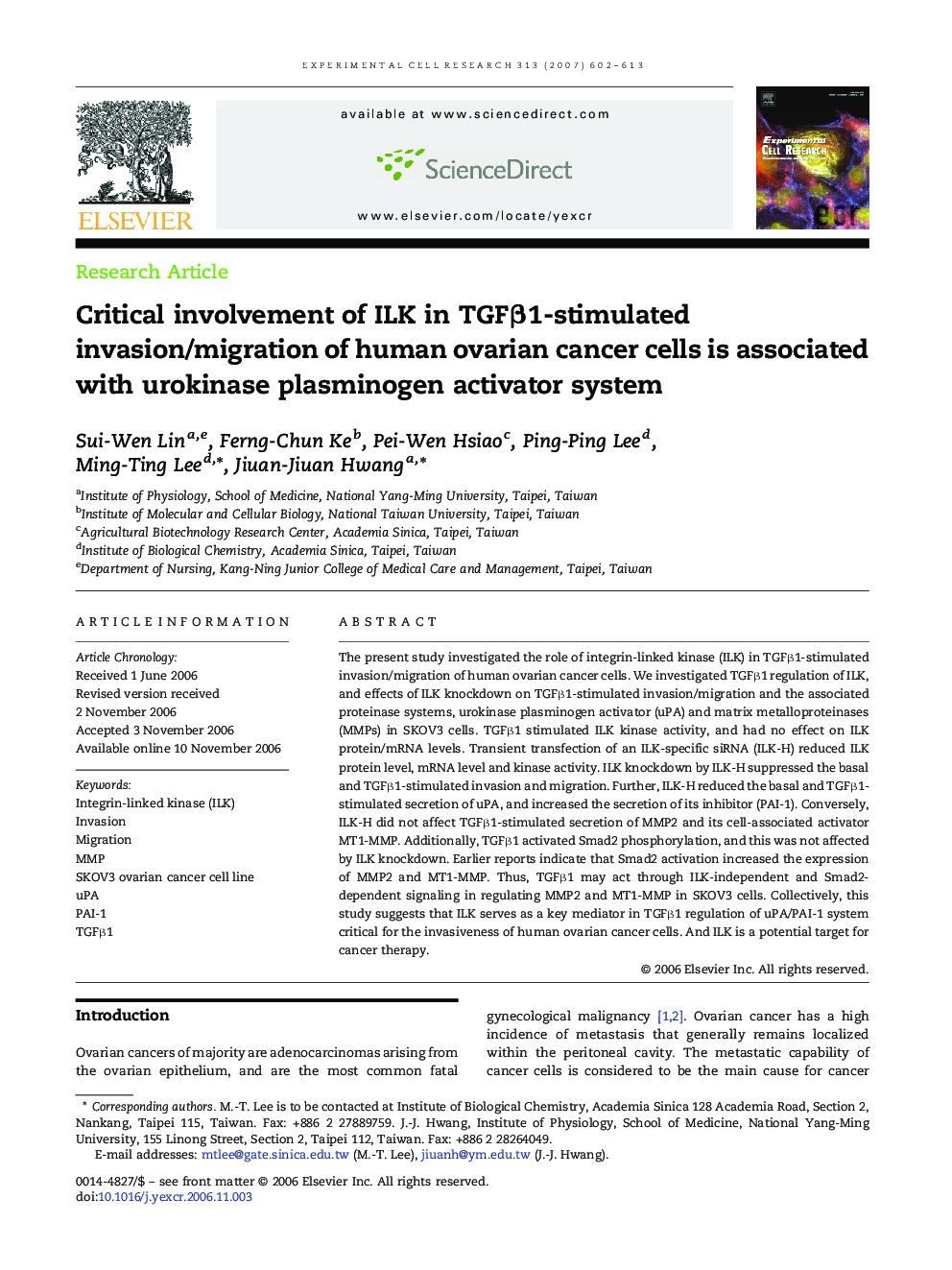| Article ID | Journal | Published Year | Pages | File Type |
|---|---|---|---|---|
| 2132601 | Experimental Cell Research | 2007 | 12 Pages |
The present study investigated the role of integrin-linked kinase (ILK) in TGFβ1-stimulated invasion/migration of human ovarian cancer cells. We investigated TGFβ1 regulation of ILK, and effects of ILK knockdown on TGFβ1-stimulated invasion/migration and the associated proteinase systems, urokinase plasminogen activator (uPA) and matrix metalloproteinases (MMPs) in SKOV3 cells. TGFβ1 stimulated ILK kinase activity, and had no effect on ILK protein/mRNA levels. Transient transfection of an ILK-specific siRNA (ILK-H) reduced ILK protein level, mRNA level and kinase activity. ILK knockdown by ILK-H suppressed the basal and TGFβ1-stimulated invasion and migration. Further, ILK-H reduced the basal and TGFβ1-stimulated secretion of uPA, and increased the secretion of its inhibitor (PAI-1). Conversely, ILK-H did not affect TGFβ1-stimulated secretion of MMP2 and its cell-associated activator MT1-MMP. Additionally, TGFβ1 activated Smad2 phosphorylation, and this was not affected by ILK knockdown. Earlier reports indicate that Smad2 activation increased the expression of MMP2 and MT1-MMP. Thus, TGFβ1 may act through ILK-independent and Smad2-dependent signaling in regulating MMP2 and MT1-MMP in SKOV3 cells. Collectively, this study suggests that ILK serves as a key mediator in TGFβ1 regulation of uPA/PAI-1 system critical for the invasiveness of human ovarian cancer cells. And ILK is a potential target for cancer therapy.
